11 benefits of not drinking alcohol in the long term, as revealed by health experts
We know the benefits of not drinking alcohol in the short term but what about going tee-total? Psychologists, doctors, personal trainers, and sleep specialists reveal all
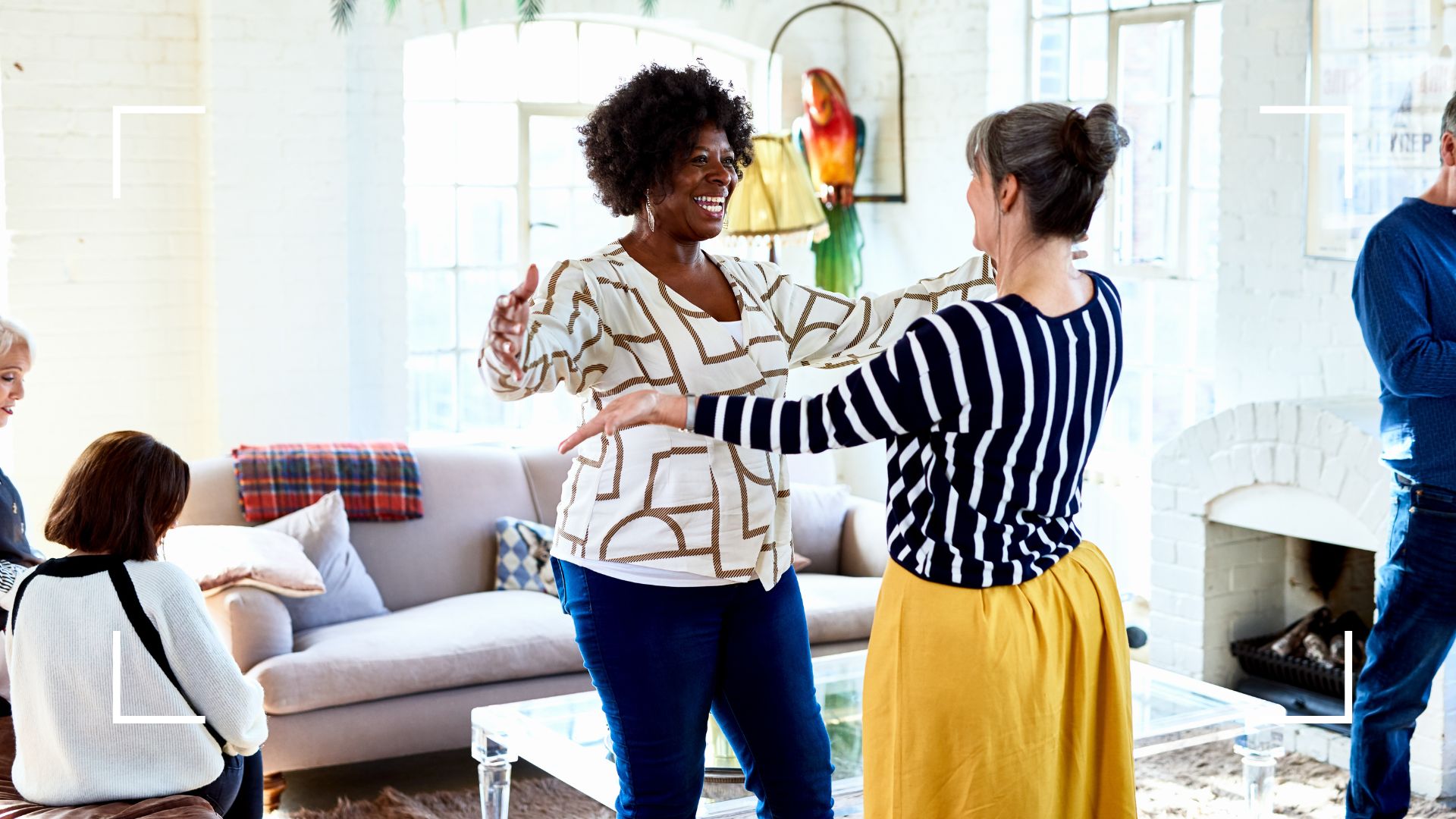

You'll be happy to learn there are so many benefits of not drinking alcohol in the long-term if you're looking to change your relationship with alcohol and go tee-total, from getting rid of hangovers and post-wine anxiety to improving your health for the years to come.
With the rise of initiatives like Sober October and Dry January, we're used to being told what happens when you stop drinking alcohol for a month. Your sleep gets better, fewer hangovers mean more productivity, and you might find that your skin, hair, and nail health improves. But what about the long-term benefits of quitting drinking?
If you're wondering what happens when you give up alcohol for good and all the benefits you can experience, we've got you covered. Here, woman&home speaks to several experts across the fields of medicine, nutrition, and psychology to determine the long-term effects of sobriety on the mind and body.
Benefits of not drinking alcohol in the long-term
1. Your immune system will function better
Alcohol can be the biggest disruptor of a healthy immune system, making us more susceptible to colds and flu, alongside more serious illnesses. As a newer study by Otto-von-Guericke University found, binge drinking creates toxins within the body that can damage cells and reduce the production of essential white blood cells called monocytes, which play an active role in fighting infections.
Worryingly though, as another study by the University of Maryland explains, alcohol consumption doesn’t even have to be chronic to have negative health consequences. In this case, researchers found that just one episode of excessive alcohol consumption can kill circulating monocytes in the blood.
It may not entirely remove the possibility of developing flu at the beginning of winter but you’ll give your immune system a fighting chance to see off any passing infections if you reduce the amount you drink or stop drinking altogether.
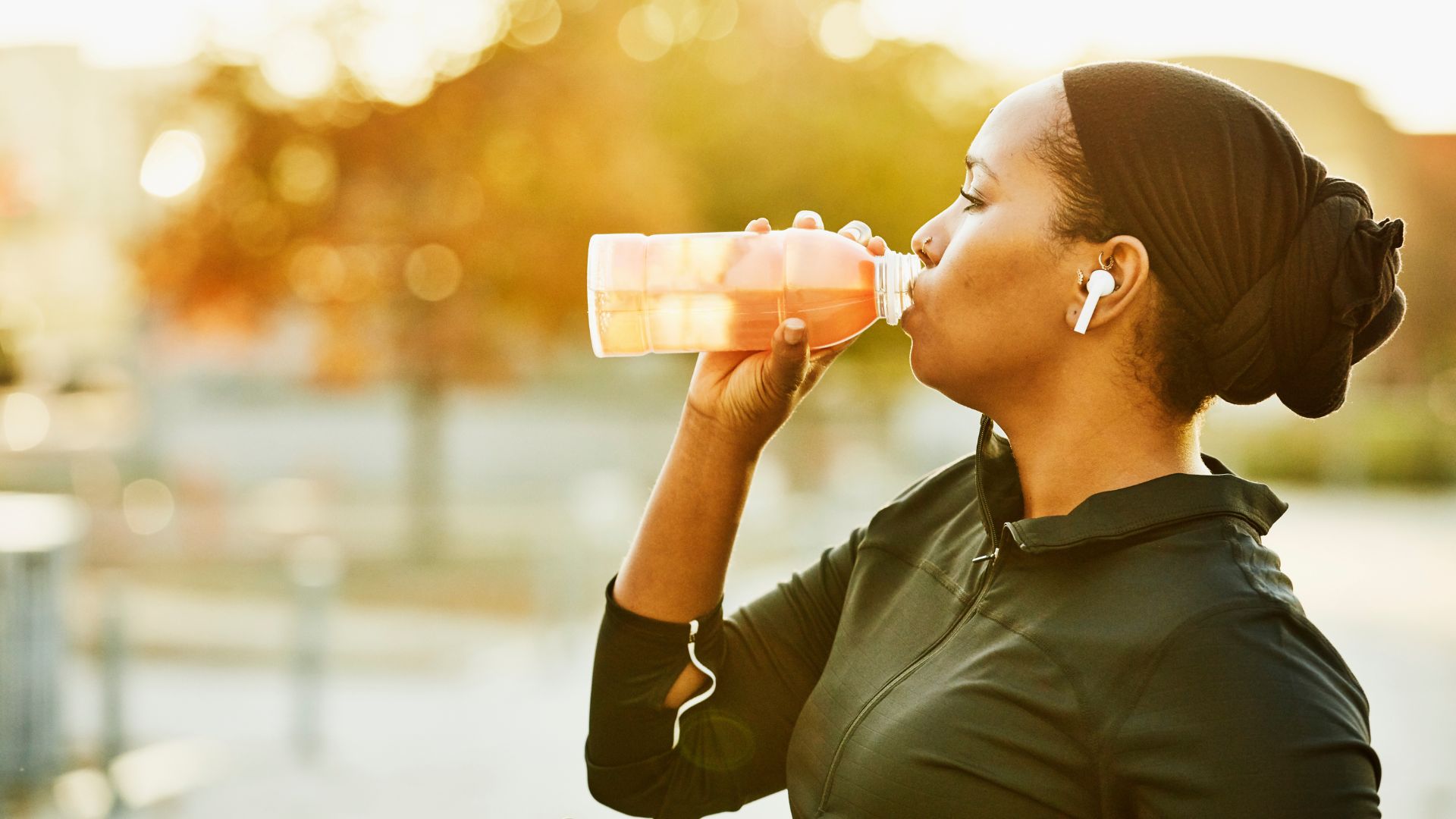
2. Your gut health will improve
We talk about how to improve our gut health all the time but still, so many of us underplay the importance of looking after your gut for overall health. One of the many benefits of not drinking includes keeping the gut microbiome healthy. These tiny microorganisms live in our digestive tracts and impact so much of the body, including the brain and the heart, and help to regulate vital processes like metabolism and the immune system. They're also partially responsible for the link between gut health and anxiety.
Sign up for the woman&home newsletter
Sign up to our free daily email for the latest royal and entertainment news, interesting opinion, expert advice on styling and beauty trends, and no-nonsense guides to the health and wellness questions you want answered.
However, excessively drinking alcohol has a significant effect on our gut microbiome, reducing the variety of species and the balance of species in the tract. It has undervalued and systemic effects, explains Natasha Evans, a registered nutritional therapist and health coach who specializes in gut health and fertility. “These disruptions to the gut-liver axis are associated with cirrhosis and alcoholic hepatitis,” she explains. “Alcohol also disrupts further up the digestive tract and can cause heartburn, contribute towards gastritis [stomach inflammation], stomach ulcers, and SIBO [small intestine bacterial overgrowth]. It causes damage to the pancreas, which produces insulin and digestive enzymes, and it harms the villi that line our intestines, which reduces our ability to absorb nutrients.”
There may be some relatively good news for those looking to learn how to cut down on alcohol or make better choices though. “The effects of moderate drinking on the gut microbiome are less studied, but from what we can see at the moment, it seems like the type of alcohol makes a difference,” she says. “Moderate consumption of wine, and particularly red wine, and beer may have some positive benefits on the microbiome because of the polyphenol compounds found in them. Moderate consumption of spirits, on the other hand, seems to have a detrimental effect but more research is needed.”

Natasha is a registered nutritional therapist and health coach specialising in fertility. Having been on her own 10-year health journey, she’s passionate about helping her clients find the unique underlying root causes of their issues so they can create sustainable long-lasting change.
She sees clients through her own private practice, as well as renowned organisations The Fertility Nutrition Centre, Daye and HUM2N.
3. You'll lower your risk of life-threatening illnesses
When your overall health improves, you also lessen the risk of nasty diseases like heart disease, stroke, type 2 diabetes, and cancer down the line. Hundreds of studies have come to this conclusion over the years, with several from the University of Toronto and JSS University alone. They highlight the particular link between alcohol, illness, disabilty and mortality, given the average risk of death for women increases by up to 40% with excessive alcohol consumption.
“The health impact of alcohol carries longer-term risks,” agrees Martin Sharp, a multi-award-winning personal trainer and health coach. “These include increased blood pressure, an impact on heart rhythms, and an increased risk of diabetes through increased insulin secretion and other hormone impacts.”
While you may have heard that there are some types of 'healthy alcohol' like red wine, for instance, as it lowers the risk of coronary heart disease, the actual real-world implications of this are so minimal. As a leading study published in The Lancet explains, the small reductions in harm with low levels of alcohol intake are outweighed by the increase of other bigger harms like cancer.

Martin Sharp is a multi-award-winning personal trainer, fitness coach and founder of Sharp Fit For Life. He is also a speaker, author and international consultant who helps busy and overweight entrepreneurs, consultants and business owners obtain the fitness and lifestyle that makes them happier, more confident and with the flexibility to continue to be at their best.

4. You'll sleep better
Studies from Brown Medical School have shown that ditching the booze for even just one month can improve your sleep quality immensely, so if you’re looking to learn how to sleep better, this should be first on your priority list. As Dr Sue Peacock, a consultant health psychologist and sleep specialist explains, “Although you may find that having a few alcoholic drinks before you go to bed helps you fall asleep quicker, the evidence suggests that alcohol negatively affects the quality of your sleep as your body is metabolizing it, which has different effects on your sleep.”
In the first half of the night, she says, you’ll experience deeper sleep than usual because alcohol acts as a sedative and your levels of adenosine, a compound that aids and maintains sleep, increase. “However, as the effect of alcohol wears off, the body realizes it has had too much slow-wave sleep and the homeostatic drive compensates by allowing less deep REM sleep in the second half of the night. This is the most important sleep stage and alcohol suppresses this, which can lead to issues with memory consolidation and cognitive processes.”
It’s not just the occasional (very) boozy night that will disrupt your sleep either, she adds, drinking even moderately and regularly will also lower your levels of melatonin, the essential sleep hormone. “This interferes with our body’s core temperature and impacts our sleep quality greatly,” the psychologist says. If you combine alcohol and menopause, for instance, the effect is compounded by other factors.
Dr Sue Peacock is a leading consultant health psychologist, registered with the Heath and Care Professions Council. She is an associate fellow of The British Psychological Society, a Registered Advanced Clinical Hypnotherapist and EMDR practitioner. She has an extensive track record of supporting clients presenting with chronic pain, sleep disorders, physical health problems, dental and medical phobias, anxiety and clinical depression for over 20 years.
5. Your sex life may improve
Having sex under the influence is a real double-sided coin. Alcohol is proven to lower our inhibitions, make us more likely to take the plunge with a partner but alongside the real issue of consent, alcohol is more likely to make us fumble as it has a real physiological impact on our ability to perform in the bedroom.
Alcohol targets the central nervous system (CNS), research by the University of Washington explains. The impact of this on the brain means we feel particularly confident after a couple of glasses of wine, but it also dulls nerve-ending sensitivity, which is vital if you want to have an orgasm.
One of the many benefits of not drinking alcohol is that you're taking the source of the problem out of the equation and allowing yourself to experience date night fully, whatever it might entail.
6. Your memory will naturally get better
As well as having better sex, you’ll also be more likely to remember it as one of the many benefits of not drinking is improved memory. Whether you’ve been talking cocktail-in-hand and forgotten what you were saying halfway through a sentence, or experienced a full blackout, most drinkers will have suffered from some kind of memory issue while drinking. That’s because of the impact alcohol has on the hippocampus, the Duke Medical Center explains, a part of the brain that renders short-term memories into longer-term ones. Immediately when we stop drinking and recover from any ongoing hangovers, the hippocampus is free to complete this function.
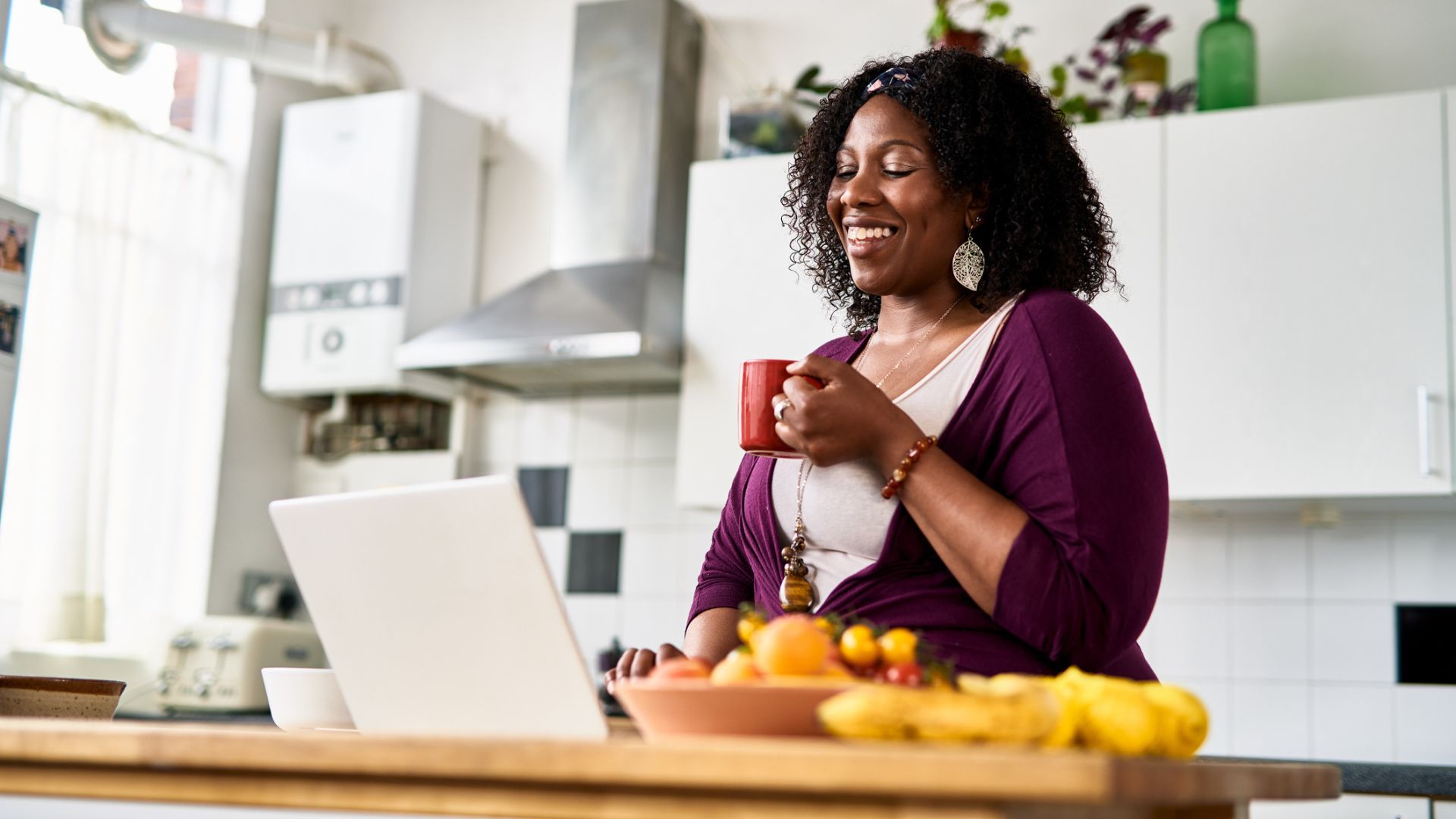
7. You'll lose weight
If you’re dieting but not losing weight then weekend drinking could, unfortunately, be to blame. Not only is alcohol significantly higher in calories at seven calories per gram but if you have a little too much to drink, your decisions at the end of the night could also push you further away from that all-important calorie deficit.
“When under the influence of alcohol, you’re more likely to make poor food decisions. For example, that late-night kebab, burger, or pizza on the way back from the bar because drinking has made you feel hungry as it’s not filling, though it’s full of calories,” says PT Martin Sharp, pointing out one of the most common weight loss mistakes.
In the morning, the headache and stomachache begin, meaning you’re less likely to head out for a walk or to the gym. All the while, Sharp adds, your body is working against you as it tries to metabolize the alcohol in your system. “Scientific studies from Indiana University School of Medicine show that alcohol can inhibit protein synthesis and fat oxidization, meaning you won’t build as much muscle and you won’t lose as much body fat,” he says. This is pretty essential, as the more muscle you have, the higher your metabolic rate and the more calories you burn at standstill, meaning the easier your weight loss journey overall.
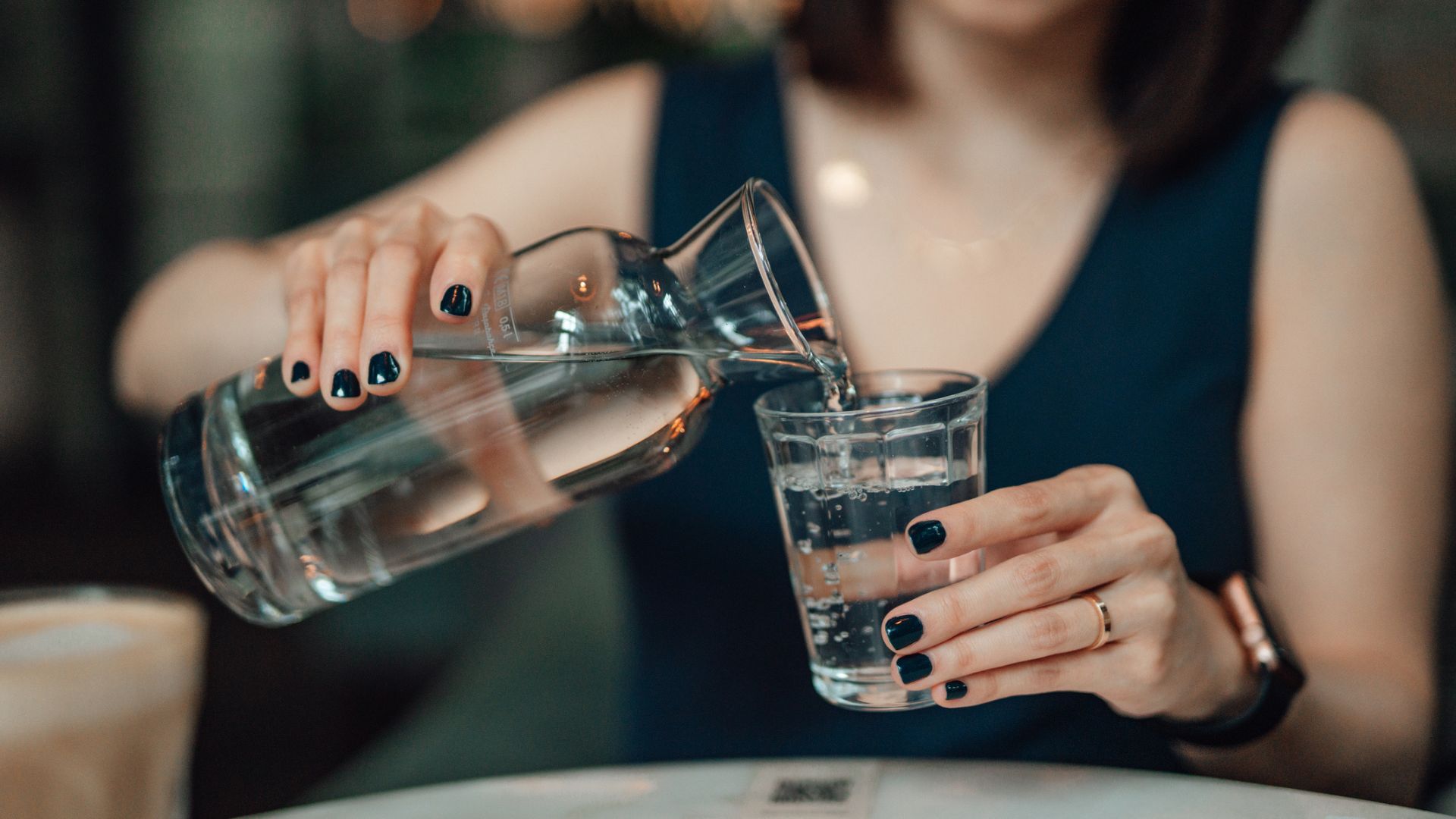
8. You'll be more hydrated
If you've ever had a dry taste in your mouth the night after drinking and wondered despairingly about how long hangovers last, this could be one of the biggest undervalued benefits of not drinking alcohol for you.
"It's true that alcohol is more metabolically active than carbohydrates or fats, meaning that you use slightly more energy in processing it compared to fats and carbs, this is the thermic effect of food," explains Sharp. "This may mean that you find your body temperature increases and your start sweating more. When you add this to the diuretic effects of alcohol, you are more likely to become dehydrated."
9. Your mental health will improve
The effect of giving up alcohol on our mental health is one that should never be undervalued, research by the University of Hong Kong suggests. In the study of over 10,000 people, results showed that women who never drink alcohol had the highest level of mental wellbeing after five year analysis. Quitting was also linked to a favourable change in mental health of female drinks in multiple populations.
It’s a statistic that psychologist Dr Becky Spelman isn’t surprised by. “In the middle of a social occasion where you’re drinking alcohol, you may find it more difficult to focus on the conversation you’re having with the other person, even if you haven’t had that much to drink. You may struggle to effectively communicate, which can exacerbate social anxiety if that’s something you suffer from,” she explains. “Some people, if they’re uncomfortable in social situations do feel like they need a drink to be more confident before interacting with others but this can make matters worse.”
Then comes the hangover, and even if it's only a minor one, it can still have a big impact on your mind. “The morning after, even without a raging hangover, alcohol can have a physiological effect on the body which can induce anxiety. It’s a depressant and amplifies the emotions you’re feeling at the time so it can have a negative effect on your emotional stability.”
Giving up alcohol can make the world of difference, she says. “It helps to reassess your thoughts about alcohol and whether you need it as much as you think you do. I now drink non-alcoholic beers, wines, and spirits that taste the same as they would normally. And that taste, along with having that glass in your hand, tricks your brain into thinking you are drinking alcohol. Social situations are easier but you are never under the influence.”

Dr Becky Spelman is a leading psychologist with over 20 years of experience in the field of mental health. She is the clinical director of the Private Therapy Clinic, a well-known London clinic for psychological therapy and psychiatry. She is also regularly seen in the media, participating in discussions about problems relating to mental health, addiction, insomnia, sex, dating and relationships. Dr. Becky treats a wide range of conditions, including depression and anxiety disorders, in both men and women.
10. If you workout, you'll get even fitter
Ditching alcohol won't immediately mean you'll be able to run a marathon - but if you've been training, you'll find your fitness levels rise the less you drink. This is simply because you'll be heading out to the gym more, you'll be doing the cardio and strength training, and you'll be more likely to actually stick to your workout plan.
Even the smallest hangover can keep us in bed or away from the gym after drinking, notes Sharp. "Impaired judgment, hand-eye coordination, and reaction times can last for days due to the hypersensitivity to light, sound, and other stimuli during a hangover or headache phase, lowering performance and recovery due to the impact on your sleep."

11. Your social life will stay the same - or get better
When people consider giving up drinking, social situations are often the biggest prevention. What will I drink instead? What will my friends say? How am I going to relax in the evening? It’s a fair assumption, says Ruari Fairbairns, who founded One Year No Beer after his own journey into sobriety - but the benefits almost always outweigh what you may (or may not) be missing out on.
“For many people, social occasions and alcohol go hand in hand. Whether it’s to calm first date nerves or just because it’s a convenient option, alcohol is woven into our social culture to alleviate daily pressures and any social nerves,” he explains. “However, as well as being expensive, alcohol can cause you to lose inhibitions that are all too important for setting boundaries. Hangovers can cause post-event embarrassment and anxiety as you mentally replay what you said or how you acted over and over.”
It’s a feeling we know all too well but it can also have a long-term impact on your social life. “Consuming too much alcohol could lead to memory loss, blackouts, and increased anxiety as you build up a tolerance to alcohol as well,” he adds, all of which don't exactly make for a good night out or a relaxing evening in.
Nowadays, there are also plenty of tasty options to choose from, like mocktails, non-alcoholic drinks in a can, and no- and low-alcohol drinks to replace your favourites with. “There’s never been so much choice, so experiment and explore what’s available with an open mind,” Fairbairns says. If you're looking for inspiration, stories from those who've given up drinking themselves or books how to do it, quit lit guides and audiobooks out there.
Ruari Fairbairns is the co-founder of One Year No Beer and the author of The 28 Day Alcohol-Free Challenge.
How long does it take to benefit from no alcohol?
You should notice changes in your sleeping pattern, productivity, and energy levels, within five to seven days of swapping your drinks to alternatives to alcohol. “When people decide to stop drinking, depending on how much they’ve been drinking before, sleep starts to become more regulated within five to seven days,” says Dr Sue Peacock. “Then after two weeks, most people notice a great improvement in their sleep and daily functioning. After a month, our sleep becomes regulated and we feel well rested in the morning.”
However, it's arguable that you'll feel the benefits of not drinking alcohol the first morning you wake up hangover free after a night where you'd otherwise have been drinking.

Grace Walsh is woman&home's Health Channel Editor, working across the areas of fitness, nutrition, sleep, mental health, relationships, and sex. She is also a qualified fitness instructor. In 2025, she will be taking on her third marathon in Brighton, completing her first ultra marathon, and qualifying as a certified personal trainer and nutrition coach.
A digital journalist with over seven years experience as a writer and editor for UK publications, Grace has covered (almost) everything in the world of health and wellbeing with bylines in Cosmopolitan, Red, The i Paper, GoodtoKnow, and more.
-
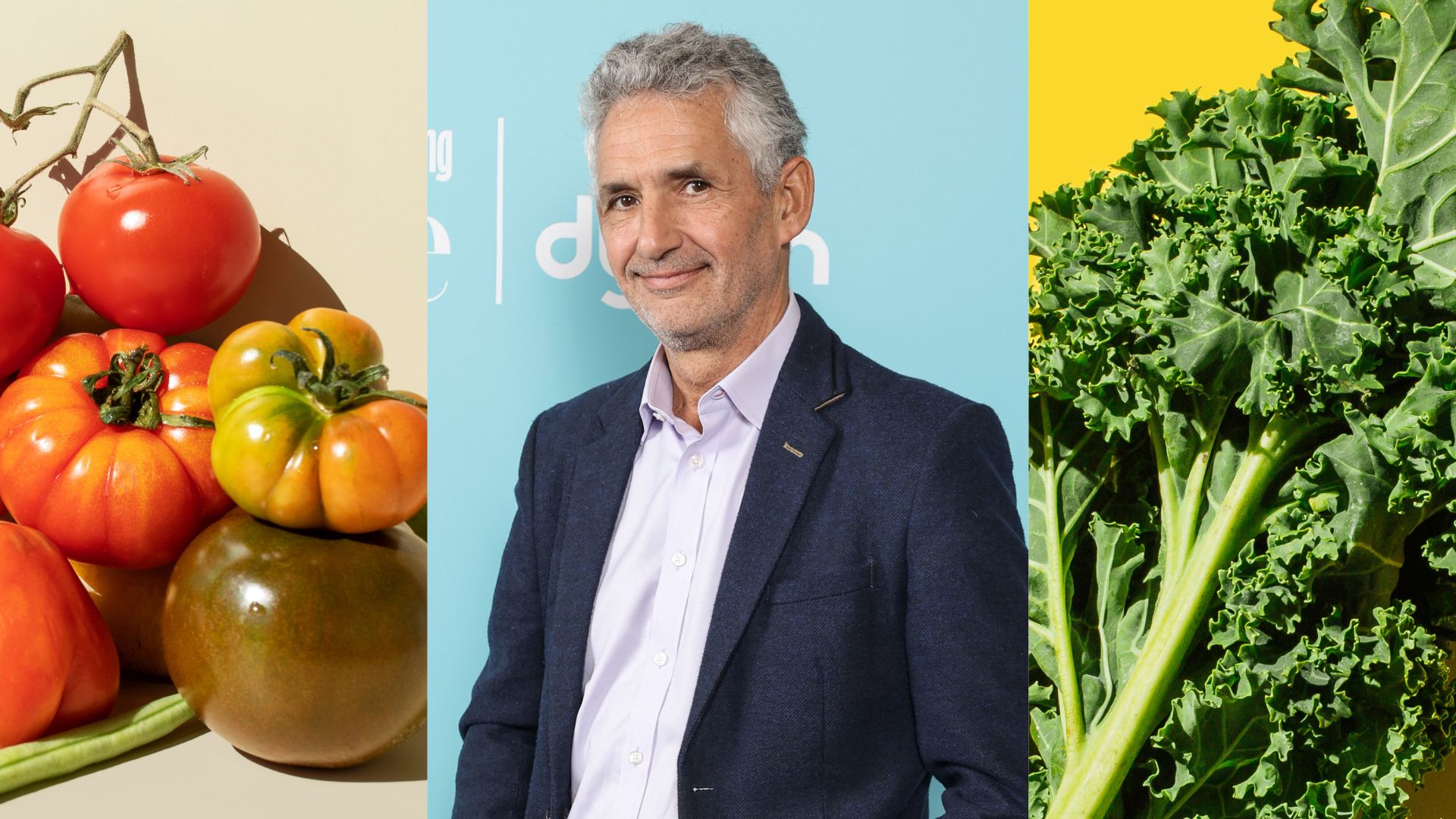 All the lessons we've learned from Professor Tim Spector on optimising your health and wellbeing
All the lessons we've learned from Professor Tim Spector on optimising your health and wellbeingIf anyone's qualified to give us lessons on how to eat better, it's Professor Tim Spector - and these are his best lessons
By Grace Walsh Published
-
 How to charm your in-laws: the ultimate guide to keeping the peace
How to charm your in-laws: the ultimate guide to keeping the peaceDiscover how to strengthen your in-law relationships, one thoughtful gesture at a time
By Natalie Denton Published